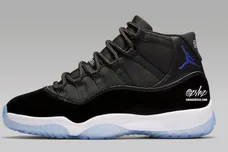Depending on how cool your social media feeds are, you probably saw some posts last week celebrating the legacy of the legendary producer J Dilla. February was declared "Dilla Month" by Stones Throw Records to commemorate the loss of James "J Dilla" Yancey, who died of a rare blood disease on February 10, 2006. His death came just days after his birthday as well the release of Donuts, arguably the greatest instrumental hip-hop album ever. Today, February 7, would have been Dilla's 42nd birthday, and the date also happens to be the 10th anniversary of his now-classic LP.
Another world-class talent, David Bowie, recently died just days after the release of his own album, Blackstar. Aside from their respective bodies of work, both untouchable in terms of quality, Bowie and Dilla followed different paths in the music world, as Bowie was a pop sensation for decades while Dilla mostly confined himself to the underground. But they are both lauded by their contemporaries for their tireless work ethic, artistic passion, and undying positivity. It's somehow both terribly eerie and fantastic that they each passed away immediately after putting the finishing touches on great pieces of work. It's as if each man's body fought to the death to fulfill his spirit's final wish -- the type of beautiful coincidence that makes one shed a tear without knowing whether it's from sadness or happiness.
J Dilla was diagnosed with an incurable disease in 2002. He could have quit working in an attempt to reach his gravestone in the most pain-free manner possible; instead, Jay Dee went into overdrive, creating and releasing more music in his final years than ever before. In 2005, amid an extended hospital stay in Los Angeles, Dilla's buddies at Stones Throw brought him a Boss SP-303 sampler and a small record player so he could make music while he was too ill to make it to a proper studio. Twenty-nine of Donuts' 31 tracks were created from his hospital bed, and hence, the album relays a certain ambiance that would simply be unreachable using normal recording practices.
The story behind Donuts is incredible, but the album is also Dilla's finest work. Each instrumental is kept short and sweet, though the whole album plays out with perfect cohesiveness. From the first moments of "Workinonit," the listener is sucked in to Dilla's far-reaching musical imagination, at play for the last time in its wordly existence.
Despite its seamless flow, the influences on Donuts are all over the place. "Stop" flips a soul classic into a boom-bap masterpiece, while "The Factory" includes enough frazzled electronics to pass as a Flying Lotus beat. By not relying on rap verses, the album stays focused and concise, squeezing 31 beats into its 43-minute duration.
Each beat comes and goes like an ambulance riding through the city, and with its liberal use of Dilla's signature siren, the album feels like what might be heard during the world's most enjoyable traffic jam. Initially, Donuts is both dense and fast-paced, but upon repeat listens, it becomes truly rewarding.
Jay Dee's music influenced the best of the best. Pharrell named him as his all-time favorite producer. "He inspired me so much," said a particularly humbled Kanye West. "One of the best days of my life was when he handed me a record with drums on it. I was so honored." And his talents are not only appreciated by those in the hip-hop world. In 2013, NPR posited that Dilla might be "jazz's latest great innovator."
Years down the road, the beats from Donuts have been used on many mixtape freestyles and one-off tracks, to the point that they've remained inescapable to serious hip-hop heads. Drake used "Time: The Donut of the Heart" for "Where to Now," off his breakout mixtape, 2007's Comeback Season. Jay Electronica used "Gobstopper" for "Abracadabra," one of the early releases that got his name buzzing. Ghostface Killah obviously had to hop on "One For Ghost," a track that was created in his honor.
Hopefully this piece will prompt less familiar readers to revisit Dilla's opus. For the final remarks on his legacy, here's Black Thought of The Roots, who recorded these words over a Donuts beat: "My man, JD, was a true hip hop artist. I can't explain the influence that his mind and ear have had on my band, myself and the careers of so many other artists. The most humble, modest, worthy, and gifted beat-maker I've known, and definitely the best producer on the mic, never without that signature smile and head bouncin' to the beat. JD had a passion for life and music, and will never be forgotten. He's a brother that was loved by me, and I love what he's done for us, and though I'm happy he's no longer in the pain he'd been recently feelin', I'm crushed by the pain of his absence.”









